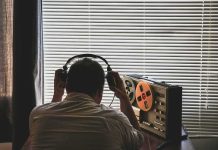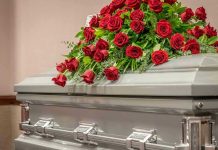
Imagine a nurse, entrusted with caring for the vulnerable, instead luring two women into modern-day slavery—right under the noses of suburbia and the healthcare system.
Story Snapshot
- Bolaji Bolarinwa, a New Jersey nurse, lured two immigrant women to the US, took their passports, and forced them into domestic servitude.
- Victims endured threats, minimal pay, and constant surveillance until one escaped to alert a college professor, triggering FBI involvement.
- Bolarinwa was convicted, sentenced to federal prison, ordered to pay restitution, and in October 2025, permanently lost her nursing license.
- The case exposes rare professional misconduct in healthcare and the hidden vulnerabilities of immigrant communities.
- Regulatory and law enforcement responses set a new precedent for accountability in human trafficking cases involving licensed professionals.
The Crime Unfolds
Bolaji Bolarinwa, a registered and advanced practice nurse from Moorestown, New Jersey, used her credentials and connections to recruit two women from overseas between 2015 and 2016. She promised them opportunity, but upon arrival, confiscated their passports and immigration documents, trapping them in her home. The women were forced to work as live-in domestic laborers and childcare providers, subjected to psychological abuse, threats of physical harm, and around-the-clock surveillance. They were paid little, isolated from the outside world, and lived in fear—classic hallmarks of human trafficking, but with a chilling twist: their captor was a licensed healthcare professional.
New Jersey nurse loses license after luring two women to the US, taking their passports, and forcing them into labor #NewJersey #Healthandsafetyhttps://t.co/zIkvp0cOcn pic.twitter.com/dw1Iq7Uisv
— Julie Zapor ~'Brave Clarice' 🔥⚖️ (@ZaporJulie) October 3, 2025
How the Abuse Was Uncovered
The exploitation continued for over a year, hidden behind closed doors in a quiet suburban neighborhood. The breakthrough came when one victim managed to reach out to a college professor, who recognized the severity of the situation and contacted the FBI. This academic intervention was critical—law enforcement might never have discovered the crimes otherwise. The FBI’s investigation led to Bolarinwa’s indictment in 2022, and by 2024, she was convicted of forced labor, domestic servitude, and harboring aliens for financial gain.
Legal and Professional Fallout
Bolarinwa was sentenced to three years and nine months in federal prison, ordered to pay $35,000 in fines, and $87,518.72 in restitution to her victims. The New Jersey Board of Nursing formally revoked her license in October 2025, barring her from ever practicing nursing in the state again. The Board’s consent order states she has no right to reapply, a rare and decisive move reflecting the gravity of her offenses. Bolarinwa has appealed her conviction, but as of now, she remains incarcerated and her professional standing is irreparably damaged.
Why This Case Stands Out
Forced labor cases are not unheard of in the US, but perpetrators are rarely licensed professionals—especially in healthcare, a field built on trust and ethics. This case forces a reckoning: How could someone sworn to protect the vulnerable instead exploit them so ruthlessly? The answer lies in the intersection of professional authority, immigration status, and isolation. Bolarinwa’s victims were doubly vulnerable—as immigrants without documentation and as individuals cut off from support networks. Their exploitation was possible because of systemic gaps in oversight and the difficulty of detecting abuse in private settings.
Regulatory bodies like the New Jersey Board of Nursing are now under scrutiny to strengthen background checks and reporting mechanisms for licensed professionals facing criminal charges. The case also highlights the role of academic institutions and observant citizens in identifying and reporting trafficking—a lesson for communities nationwide.
Impact on Victims and Communities
The immediate impact on the victims is clear: they have received financial restitution, but the psychological scars of prolonged abuse and manipulation are likely to endure. For the broader immigrant community, this case is a stark reminder of the risks faced by those seeking a better life in the US. It also raises uncomfortable questions for the healthcare sector about how well it screens and monitors its own, and whether enough is being done to protect the most vulnerable from those meant to care for them.
Looking Forward
Bolarinwa’s case sets a precedent: licensed professionals who engage in human trafficking will face severe legal and professional consequences. The restitution and fines imposed send a message that such crimes will not be tolerated, and the permanent loss of a professional license is a powerful deterrent. For the healthcare industry, this is a wake-up call to review internal controls, improve training on recognizing trafficking, and foster a culture where reporting misconduct is encouraged and protected.
Ultimately, this story is about more than one rogue nurse—it’s about the systems that failed to prevent her crimes and the individuals who stepped up to stop them. It’s a reminder that exploitation thrives in silence, and that everyone—from professors to regulators—has a role to play in breaking the cycle.
Sources:
NJ Division of Consumer Affairs (official press release)
NJ Board of Nursing Consent Order (official PDF)




